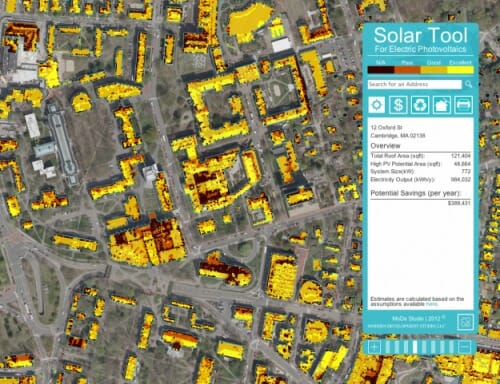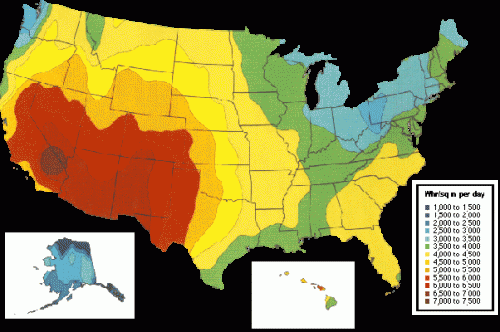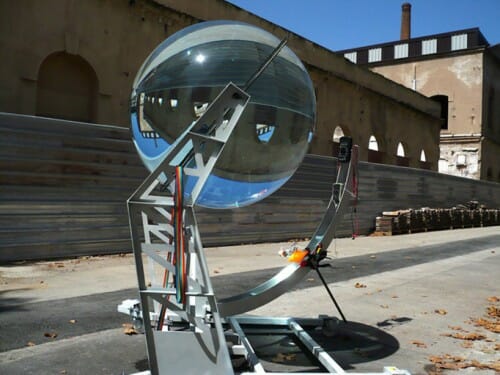Kevin Drum makes a pleas for liberals to, in effect, rally around Solyndra and be proud of the investment. I am sure Republicans would give the same advice to liberals. I want to look at a few of his arguments.
First, for libertarians like myself, the argument that Republicans did it too, or the Republicans started it, are a non-starter. In particular, I actually thought the Obama Administration's attempt to blame Bush for Solyndra was an Onion article, since its almost a caricature of this administrations refusal to take responsibility for anything. Unlike Republicans, I don't see this so much as an Obama failure as a government failure, and I don't really care if it is of the red or blue flavor.
Second, the fact that private investors put their own money into it is irrelevant. Private investors poured money into Pets.com too. Obama was pouring my money into Solyndra, and yes the fact that it is my money makes a difference.
Further, private investors put their money into Solyndra years before the taxpayer did. It may well have been that they had a reasonable expectation at that time of investment returns. That is their problem. Our problem is that by the time Obama put our money into the company, it was pretty clear to everyone in the industry that Solyndra was going nowhere.
Drum and his source, Dave Roberts, attempt to argue that the drop in silicon prices and addition of low-cost solar capacity in China didn't occur until months after Obama's decision to fund Solyndra. But that is a tortured argument. In point of fact, everyone in the industry saw this coming - after all, the capacity Roberts describes as coming online in June was under construction months and years before that, and was known to be coming by everyone in the industry. When I was in a global manufacturing business, we kept up with everyone's plans for capacity additions -- I can't even imagine waking up one day and saying, "huh, a bunch of capacity just opened in China." (by the way, it is pretty typical of liberals to see prices as a given, rather than as a part of a feedback system where high prices lead to actions that might well lower prices over time).
This timeline is therefore pretty disingenuous
March 2009: The same credit committee approves the strengthened loan application. The deal passes on to DOE’s credit review board. Career staff (not political appointees) within the DOE issue a conditional commitment setting out terms for a guarantee.
June 2009: As more silicon production facilities come online while demand for PV wavers due to the economic slowdown, silicon prices start to drop. Meanwhile, the Chinese begin rapidly scaling domestic manufacturing and set a path toward dramatic, unforeseen cost reductions in PV. Between June of 2009 and August of 2011, PV prices drop more than 50%.
I am sure that this is wildly logical to a journalism major, but someone in business would laugh off the implication that what happened in June was wholly unforeseeable in March. Want more proof? The loan guarantee itself is proof. Years earlier, the company attracted a billion dollars of private capital. Now it takes a government guarantee to get capital? And you think nothing had changed with the insider's perception of the opportunity?
A good analogy might be if I invested in Greek bonds today. And then in 3 months the Greek government defaults and I lose all my money. I suppose I could craft a timeline that said the default did not happen until months after my investment, but could anyone living right now say that I really had no reason on September 16, 2011 to expect a Greek default?
The real howler in the article is this one:
There was no scandal in the loan process, and there's nothing unusual about having a certain fraction of speculative programs like this fail. It's all part of the way the free market works.
First, I agree there is no scandal here if one defines scandal as something out of the norm. Republicans want to count political coup on Democrats so they want to say this is fraudulent. But fraudulent implies that we could find honorable technocrats who could have avoided this problem. We can't. This kind of failure is fundamental and inseparable from the act of government trying to pick winners, and would exist no matter what people were in place.
Second, calling this "the way free markets work" is obscene. Free markets don't use force on investors to make them put money into certain investments.
But more importantly, government loan guarantees go only to those companies who the free market has chosen NOT to fund. If the free market was willing to toss another half billion into Solyndra, its owners would not have been burning a path back and forth to Washington. So by definition, every single government loan guarantee in this program is to a company or a technology that the free market, knowledgeable investors, and industry insiders have rejected as a bad investment. For the program to work, one has to believe that Obama, Chu, and some career energy department bureaucrats have a better understanding of commercializing technologies than do private investors (who are investing with their own money) and industry experts.
Postscript: I have to also comment on this from the timeline:
February 2011: Due to a liquidity crisis, investors provide $75 million to help restructure the loan guarantee. The DOE rightly assumed it was better to give Solyndra a fighting chance rather than liquidate the company – which was a going concern – for market value, which would have guaranteed significant losses.
The author glosses over it, but this is the $75 million I discussed the other day that dropped the US out of the senior position and guaranteed that the taxpayer would lose everything rather than only a portion of the investment
The notion of giving it more time was absurd. Even closed with everyone laid off the company is burning a million a week in cash. How much was it burning when open? And if it was totally clear at this point that the market had fundamentally shifted and the company could not compete, what the hell was the time going to help? Maybe they were hoping to win the Publishers Clearing House Sweepstakes? I suppose it could have been to give them time to try to sell the company, but there is no evidence any such discussions were taking place.
In fact, it is pretty clear that the US Government got played with that $75 million investment. Any private lender who had allowed someone else to grab the senior position for a trivial investment in a company on the express train to chapter 7 would be fired immediately.
And if you want fraud, you might look at Solyndra's summer asset sales. All the company's assets of any liquidity and value were sold over the summer to Argonaut, who also happens to be the owner of the majority state AND the company who invested $75 million in return for the senior position. Depending on the sale price for this self-dealing, one could argue that the time the $75 million bought was merely the time needed to loot the company of any valuable assets before it went bankrupt.
Postscript #2: I have written before about how much expertise about business tends to be claimed by liberal journalists and places like Think Progress. I had a funny thought trying to imagine the Think Progress business school and what it would teach. Might be a parody I need to write sometime.



